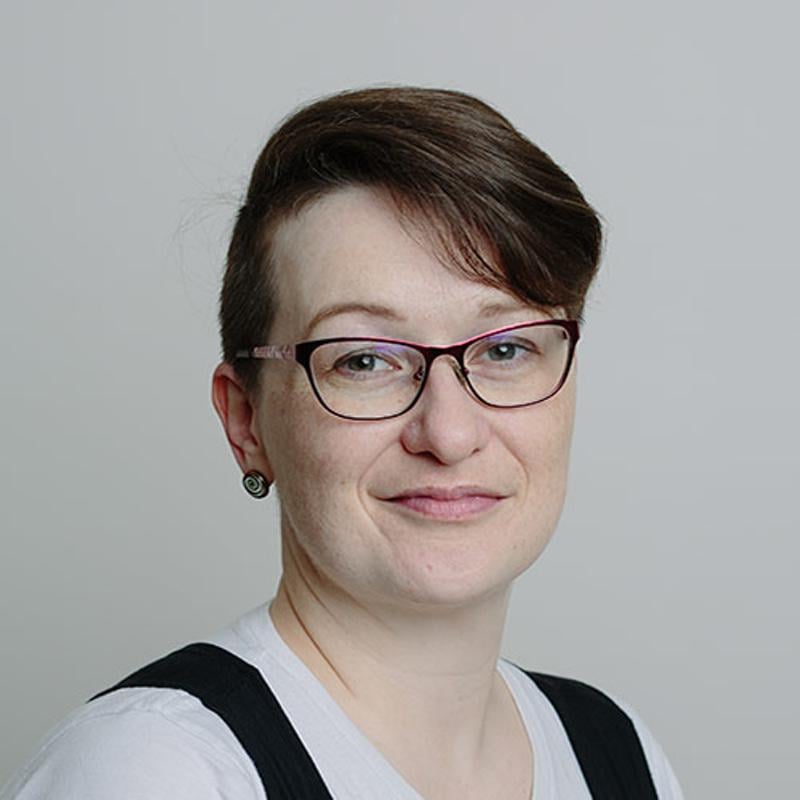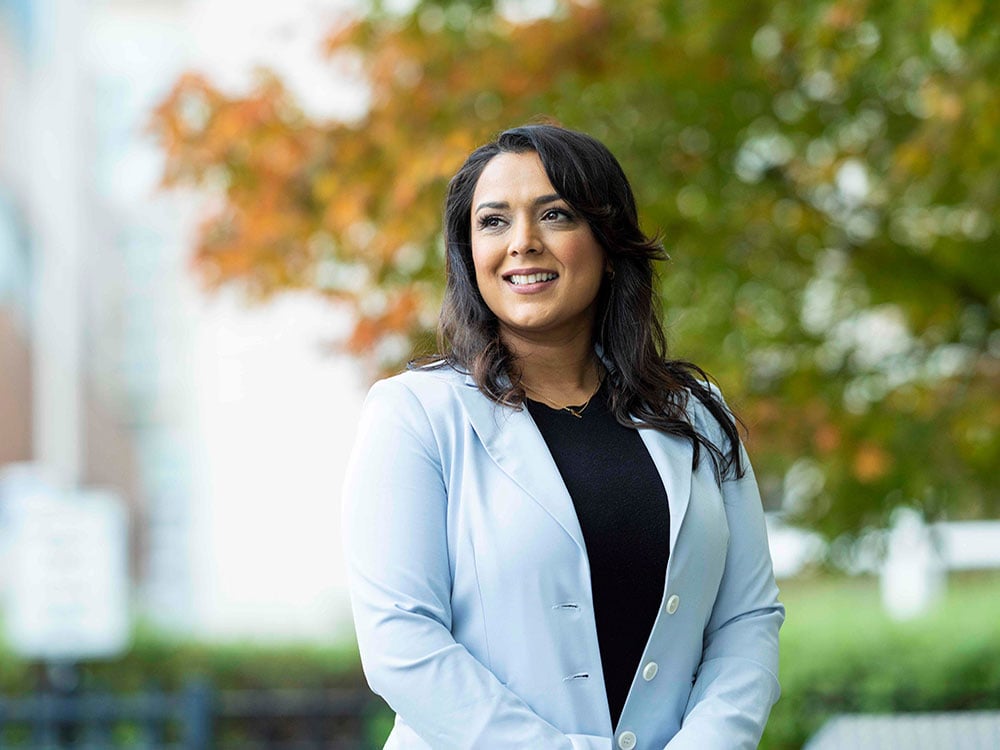While divorce rates were trending downwards prior to the pandemic, new numbers have shown a 30-per-cent increase in couples across Canada calling it quits.
While breaking up may be best in the long-run, in the short term it can have a negative impact on the kids. Divorce is one of 10 Adverse Childhood Experiences, otherwise known as ACEs, that are linked to disease, mental illness, cognitive issues, addiction and early death in adulthood.
Much of this harm can be prevented, says Dr. Ramneek Dosanjh, president of Doctors of BC, by taking a look at the family law systems we have set up to process divorces, separations, custody agreements and child welfare interventions, and the role doctors could play.
For instance, by taking a trauma-informed approach to families in the family law system; making counselling available for kids and families who need it; and considering the well-being of kids at every step of the way.
“When you actually become aware, it's really part of our due diligence and our advocacy to stand up to systems that may be perpetuating it,” Dosanjh said, adding ACEs are a public health crisis.
Doctors of BC has teamed up with the Law Society of BC and Access to Justice BC in the Transform the Family Justice System Collaborative, a provincial family justice system reform project that centres the well-being of families and kids.
So far they have provided online events for doctors and lawyers to discuss Adverse Childhood Experiences and solutions to eradicating toxic stress in the kids they work with.
The Tyee spoke with Dr. Dosanjh about how we can better support children when their parents split so they have a better shot at growing into a healthy adulthood. This interview has been edited for lengthy and clarity.
Why is Doctors of BC looking specifically at the Adverse Childhood Experiences that could come from divorce or custody disputes?
Dr. Ramneek Dosanjh: We know that the pandemic has aggravated issues with family conflict and intimate partner violence, resulting in more children, youth and families being negatively affected by toxic stress, really detrimentally affecting their mental health, their psychological well-being. And we know that this is a public health crisis and an epidemic that's growing. So we took it upon ourselves to really look at the systems which could be doing things better.
And this is really looking at our health-care system, how do we wrap around our kids and bring awareness, from the physicians’ perspective, the parents’ perspective, the educational sector, involving them in those conversations. And understanding if we can have an impact on children's lives, from this angle, it's important to get that information out there.
What are some things that doctors and lawyers could do to help kids with divorce and custody proceedings?
For one, doctors and lawyers have never gone into a room to actually discuss pertinent issues.
I'm obviously a family doctor, but we have the interface of protecting our children and advocating for the pediatric population as well as families in the role that we play. And lawyers are also in the family law process, and we know that it's supposed to be helpful and support the families, both the justice sector and the health sector.
But the components of the family justice system, including the potential for delays in resolving issues, sometimes a lack of legal advice and other resources such as counselling, can all be parts of this problem of increasing the toxic stress, and each further contribute to Adverse Childhood Experiences. Also, instead of the way things are handled right now within high conflict or adversarial situations, there could be a better process, a trauma-informed lens, which I hope we could adopt going forward.
Our exploration around particular solutions is still in a very preliminary stage, but we do know that the family justice system that takes the brain science of Adverse Childhood Experiences and resilience into account will definitely make the well-being of families the priority, and that's the goal.
What are some other things that possibly could be done differently in family law that a lawyer might have control over?
I look at our partners in Alberta, the way that they've changed, even, for example, affidavits: they've reduced the amount that people can actually write in an affidavit, which is 10 pages. Here, there's no limit: you may get an affidavit, it's 200 pages. The limit can lessen the trauma response from someone being litigated against, and really decrease the likelihood that someone can amplify a power dynamic within the family justice court system. Especially for people that are going through intimate partner violence.
So is the idea that toxic stress for parents would trickle down to the children?
Absolutely. That's actually a particular Adverse Childhood Experience for women, especially when subject to intimate partner violence; we know that there's a trickle effect with even the psychological component of children, and they inherit these traumas. And we've actually seen it all the way to the level of gene expression. It's not little stuff, it's a lot bigger than we've known before.
What would you say to someone who says, "Well, my parents got divorced, and I'm fine"?
Many, myself included, had adversity and you adapt, you evolve and you have resiliency. But many people also have positive factors in their life, which is usually a caring adult, peer support, educational support, parent support, which help you with a favourable outcome.
The toxic level of stress is when a person's emotional, physiological or psychological needs are unmet and overwhelmed by external stress factors. That there are not enough coping mechanisms and resilience to be able to get through the toxic stress factors.
I also want to recognize that when people say, ‘Oh, I turned out fine' — OK, you turned out fine. But you could be great. You could even be better. We have a tendency to accept where we are, and we have an inherent bias with that, because that's all we know. But when we look at the research and data, we know we can be better.
How did Doctors of BC partner up with the Law Society of BC and Access to Justice?
I will be very open with you. This is a project that I got involved with actually having direct lived experience through the court system, right before COVID hit. And I noticed that even as a physician, and with all of the tools and training that I had working with children and families, it was a near impossible feat to navigate this system.
And when I recognize that it's this difficult, even being educated and having support networks, I had to think of the voiceless. I had to think about all the patients — families, children — that we see in our communities that must be suffering. I think about the Indigenous families, and even the child protection side of things because, living through it, it didn't feel very protective at all.
I'm involved with discussions about transforming the family justice system, and I asked our board if they would embark on a new kind of journey with intersectional allyship, something we've never done before. And they were unanimously in favour. They realize it impacts on the independent, personal level, but more on a collective level.
Was navigating family law difficult because it's a particularly labyrinthian bureaucratic system or was it the emotional aspect?
The labyrinth, definitely. And there's the lack of transparency of what it entails, how it evolves, how you navigate the system, how you advocate for yourself, how you pick the lawyer. What kind of counselling? What kind of support do you need up front? What kind of financial burden are you going to incur? There's not enough education around how to safeguard and protect yourself through some potentially adversarial process.
And we just operate with the system we've been given and there's lengthy delays when you need timely access and decisions need to be made, and decisions are made on behalf of children without necessarily their whole best interest.
With the changes you're talking about making to family justice, health and pediatric care, is it possible that divorce and separation could be removed from the Adverse Childhood Experiences list? Or is that always going to be somewhat traumatic?
I honestly think that if we could do this right, we really could dramatically impact how the stress is dealt with in the pediatric environment but also the family dynamic. We may not get to the point that we get to eliminate the Adverse Childhood Experiences, but really mitigate or reduce the impact they have.
From a preparation standpoint it's really important because there's a range of behaviours that I've witnessed in clients and children who are in toxic stress: children not going to school or getting in trouble with the law, depression, addiction, aggression — there’s so many ways that we see these effects. And most of them do affect people into their adulthood.
This is an opportunity like we haven't had before, an ability to look at our systems, which are actually creating harm. Both the health system and the justice system are definitely in need of some reform. ![]()
Read more: Health, Rights + Justice

















Tyee Commenting Guidelines
Comments that violate guidelines risk being deleted, and violations may result in a temporary or permanent user ban. Maintain the spirit of good conversation to stay in the discussion.
*Please note The Tyee is not a forum for spreading misinformation about COVID-19, denying its existence or minimizing its risk to public health.
Do:
Do not: